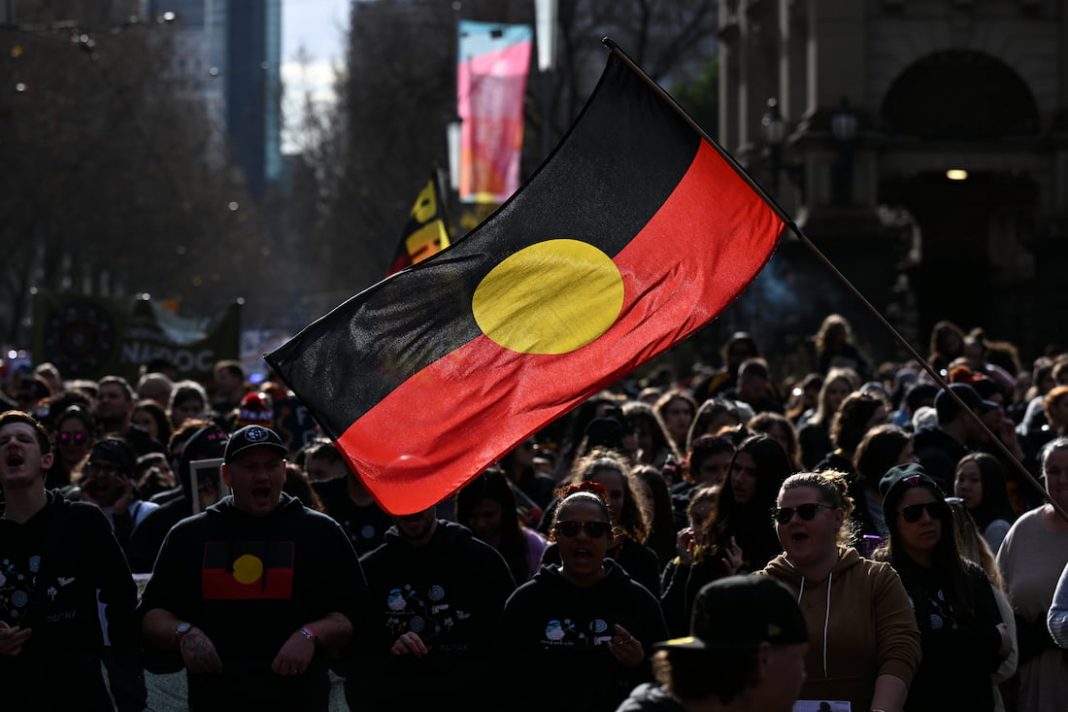Australia’s Indigenous and political leaders have flagged a fresh look at improving living conditions following the failure of the voice referendum.
Every state turned down the proposal to put a non-binding Indigenous advisory body in the constitution, with the ACT the only jurisdiction to back the ‘yes’ case.
Health Minister Mark Butler said Labor was fighting history and against the odds to get a referendum up without the support of the opposition, which had never been done before.
Mr Butler signalled that Opposition Leader Peter Dutton denounced the voice due to political pressure after the coalition lost government in NSW and he oversaw the historic by-election loss in Aston.
“A significant change of tack was put in place by Peter Dutton … after those two very big election defeats for the Liberal Party,” he told Sky News on Sunday.
“Then I think it became very difficult for us to win a referendum against, really, all historical precedent.”
Mr Butler said the nation needed to find a way forward as Indigenous communities deal with health issues that don’t exist in major cities.
“I’m working on ways to deal with the extraordinary levels of rheumatic heart disease in remote Aboriginal communities,” he said.
“Disease we don’t see in our major cities because it was largely eradicated in developed economies 50 or 60 years ago.”
Prime Minister Anthony Albanese says the pathway to Indigenous reconciliation is not dead.
Shadow attorney-general Michaelia Cash said Australians had said ‘no’ to dividing the nation “on the basis of race and ancestry”.
It was the referendum the nation did not need to have and the prime minister had taken his eye off the ball regarding the cost of living, Senator Cash said.
“Australia has gone through an extremely bruising time,” she told AAP.
“But certainly, let’s unite – the one thing we can all agree on is that we all want to see better outcomes for our most marginalised in society.”
Asked whether a Peter Dutton-led government is still committed to holding a second referendum solely on Indigenous recognition, Senator Cash said, “we need to let the dust settle”.
But she pointed to the opposition leader recommitting support to a royal commission into child sexual abuse in Indigenous communities and an audit into spending on Indigenous programs.
Asked why an audit wasn’t conducted during the coalition’s decade in office, she said there had not been a voice like Indigenous senator Jacinta Nampijinpa Price who brought lived experience to the parliament.
“This is not about blaming past governments,” she said.
“This is a time now to embrace the opportunities presented to us by Jacinta and move forward together.”
Senator Michaelia Cash says Australia has gone through an extremely bruising time.
Deputy Prime Minister Richard Marles said the government took responsibility for the referendum and outcome but the vote shouldn’t be taken as one against reconciliation.
“I do hope that coming out of this there is an increased appetite to put in place programs to close the gap – that is where our focus is now,” he told the ABC’s Insiders program.
There were no regrets about taking the referendum forward “because there are times where difficult things are achieved,” he said.
Prime Minister Anthony Albanese used a national address after the referendum result became clear to say the pathway to reconciliation was not dead.
“This moment of disagreement does not define us and it will not divide us,” he said.
“We will continue to write the next chapter in that great Australian story and we will write it together, and reconciliation must be a part of that chapter.”
Mr Dutton, who championed the ‘no’ case, said all Australians wanted to see Indigenous disadvantage addressed but didn’t think the voice was the way forward.
The Labor premiers of NSW, Victoria and Queensland – who all voted ‘no’ – said while they acknowledged the result, they would work to improve the outcomes for Indigenous disadvantage.
13YARN 13 92 76
Aboriginal Counselling Services 0410 539 905
By Dominic Giannini in Canberra



